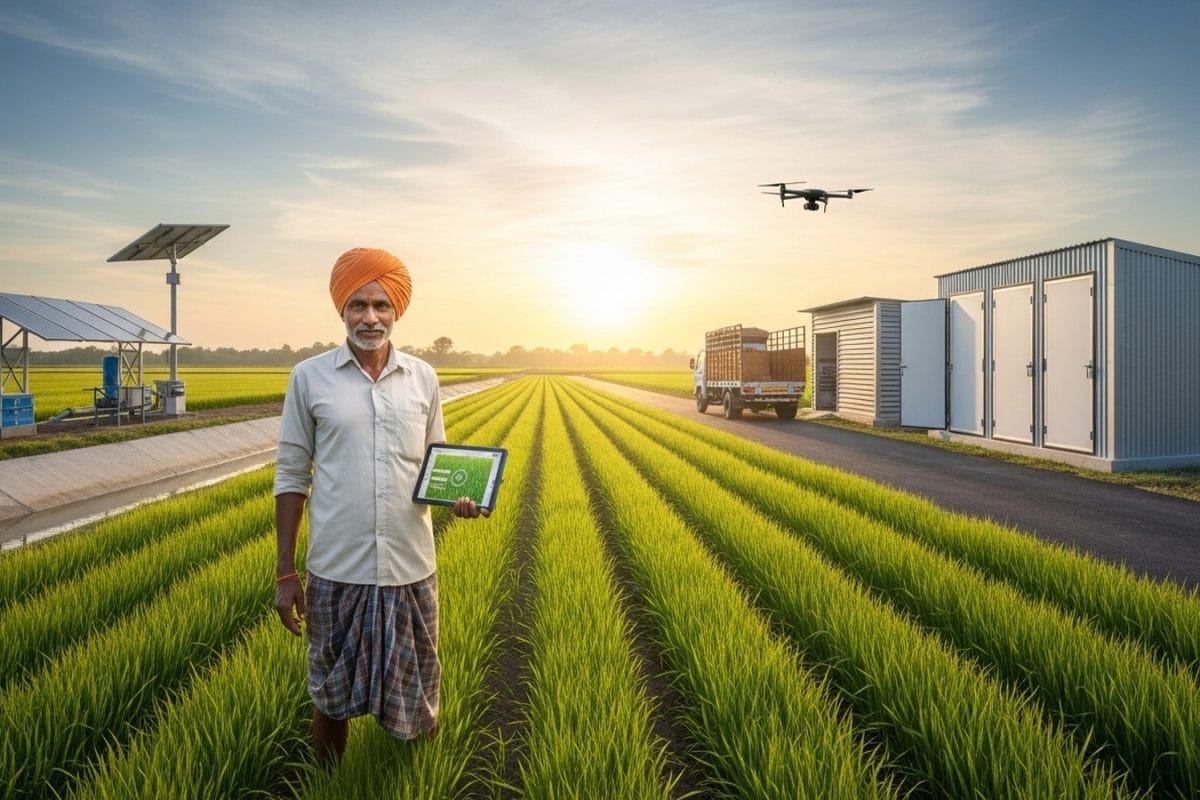

The Indian government has consistently emphasized the agriculture sector, recognizing its vital role in the nation's economy and the livelihood of a significant portion of its population. To support farmers and enhance agricultural productivity, the government has launched numerous schemes aimed at providing financial assistance, promoting sustainable practices, ensuring irrigation, and mitigating risks. Here are ten prominent government schemes designed to benefit Indian farmers:
Pradhan Mantri Kisan Samman Nidhi (PM-KISAN): Launched in February 2019, PM-KISAN provides income support to small and marginal farmers. Under this scheme, eligible farmers receive ₹6,000 per year, disbursed in three equal installments directly into their bank accounts through Direct Benefit Transfer (DBT). This financial assistance helps farmers meet their agricultural and domestic needs.
Pradhan Mantri Krishi Sinchayee Yojana (PMKSY): This scheme aims to provide access to protective irrigation for all agricultural farms in the country, focusing on the principle of "Har Khet Ko Pani" (Water to every field). PMKSY promotes efficient water use through micro-irrigation systems like drip and sprinkler irrigation, along with the construction of water harvesting structures. The scheme also includes sub-schemes like the Accelerated Irrigation Benefit Programme (AIBP) and Per Drop More Crop, enhancing water efficiency and crop productivity.
Pradhan Mantri Fasal Bima Yojana (PMFBY): Crop failures due to natural calamities can be devastating for farmers. PMFBY provides insurance coverage and financial compensation for crop losses caused by non-preventable natural risks, pest infestations, and disease outbreaks. The scheme covers all food and oilseed crops, with affordable premiums for farmers and the use of mobile apps for faster claim processing.
Soil Health Card Scheme: Recognizing soil as a farmer's real capital, this scheme provides farmers with detailed information on the nutrient levels of their soil, including pH, nitrogen, phosphorus, and potassium levels. Based on this data, farmers receive personalized fertilizer recommendations, encouraging crop rotation and reducing unnecessary chemical use. This leads to increased long-term productivity and cost savings on fertilizers.
Kisan Credit Card (KCC) Scheme: The KCC scheme provides farmers with access to institutional credit for their agricultural needs. Kisan Credit Cards facilitate short-term loans for farmers, fishermen and dairy farmers. This enables them to purchase seeds, fertilizers, and other inputs, supporting their farming activities.
National Mission for Sustainable Agriculture (NMSA): Launched under the National Action Plan on Climate Change (NAPCC), NMSA promotes sustainable agricultural practices to mitigate the impacts of climate change. The scheme focuses on water efficiency, soil health management, and agroforestry, encouraging organic farming techniques, climate-resilient seeds, and integrated farming systems.
Paramparagat Krishi Vikas Yojana (PKVY): This scheme promotes organic farming through cluster-based cultivation. Farmer clusters are created, each comprising 20 hectares, to ensure the collective adoption of organic practices. PKVY encourages the use of natural fertilizers and bio-pesticides, reducing the reliance on chemical inputs, enhancing soil fertility, improving farm incomes, and promoting sustainable agriculture.
Rashtriya Krishi Vikas Yojana (RKVY): RKVY encourages states to increase public investment in agriculture by supporting innovative ideas in agriculture, agri-tech, and value chain development. The scheme has been instrumental in improving rural economies and promoting the adoption of innovative farming practices.
Agriculture Infrastructure Fund (AIF): The AIF helps farmers build storage units and warehouses to reduce post-harvest losses. This infrastructure enables farmers to store their produce safely and sell it at fair prices, reducing wastage and increasing their income.
Pradhan Mantri Dhan-Dhaanya Krishi Yojana: This scheme aims to enhance agricultural productivity through crop diversification and sustainable agricultural practices. It also focuses on improving irrigation facilities and augmenting post-harvest storage at the panchayat and block levels, facilitating the availability of both long-term and short-term credit.
These schemes collectively contribute to the development of the agriculture sector by addressing various challenges faced by farmers and promoting sustainable and modern agricultural practices. By providing financial assistance, insurance coverage, access to credit, and promoting efficient resource management, the government aims to improve the livelihoods of farmers and ensure food security for the nation.